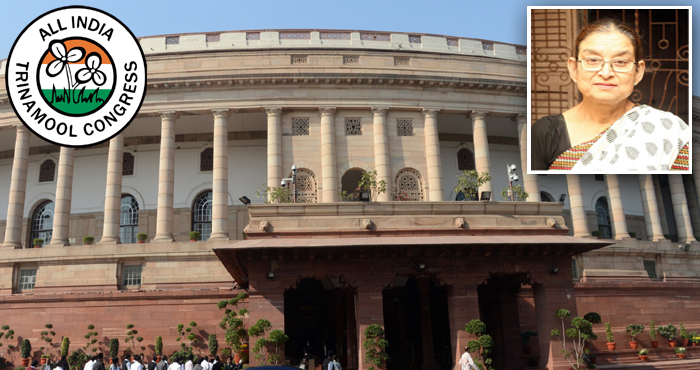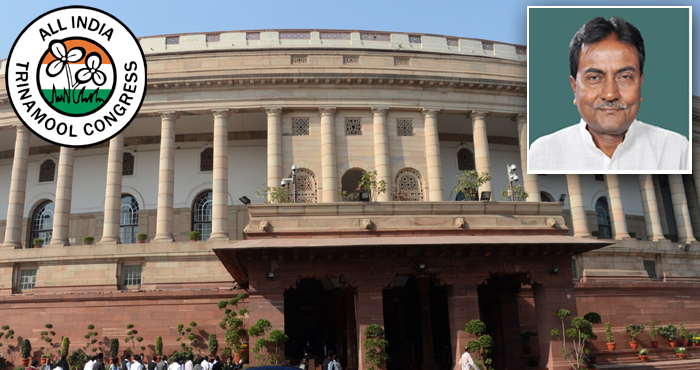FULL TRANSCRIPT
We are discussing such an important Bill at a time where on April 7 will be celebrating the World Health Organisation Day and this year’s theme is ‘Depression – Let’s Talk’. It is showing the global importance about the psychological situation. And we are the pioneer, we can say, about dealing with mental health issues this year. This Bill is a revolutionary approach to mental healthcare and it is unique. It seems to be idealistic but not totally realistic. And it is not foolproof.
The Act of 1987 provided only general protection of people with mental illness (PMI) against indignant and cruel treatment. The Bill of 2016 talks about mental care in the broader sense or aspects, mostly dealing with human rights aspect and focusing on admissible patients. According to WHO’s international code of diseases, PMI is defined as a disorder of thinking, mood perception, orientation, memory, excluding mental retardation and including drug abuse. And in the Bill we corporate that. This is good.
Taking this in account, this Bill when it appears as an Act, will be help to change the general public attitude towards PMI persons and it will prevent public to call them lunatics and abuse them, hesitate to be associated with them and it would remove this stigma of avoiding the medical health. Instead of mental asylum – in Bengali we used to call it ‘pagla garod’ that means it is a jail for pagals; It is a very bad thing – now I suppose it will have a new dignified name. It is highly appreciable that the Bill guarantees certain human and social rights to PMI persons. Most of these concepts are of western, developed countries and they may not be feasible or suitable for implementation in our country because of budgetary constraints as well as social lifestyles.
Directive has been given in the Bill of the right to access affordable, good quality, easily accessible, minimum mental care up to district level. This right is already given in our constitution, for any patient to have access of healthcare facilities; it’s a fundamental right. I don’t know what the necessity is for emphasising this in this Bill.
NHM has already got programmes for PMIs and the proposal for the establishment of special units for them up to at least the level of districts. In West Bengal, we already have 61 such centres including in seven medical colleges and in many district hospitals, some of which are being upgraded to medical colleges. The irony is that the budgetary allocation for health would be quite insufficient for these new health programmes ventured into by the Central Government.
The most bold and acceptable issue in the Bill is the decriminalisation of suicide. Unless otherwise proven, such victims should be considered as cases of PMI. Well, it is a very bold attitude, but the Bill does not give any directives about, when the person has recovered from the effect of attempting suicide, what would be the next steps – how we would counsel them, etc. Another very good thing is about the insurance coverage. It is an appreciable gesture and it is a very important issue in such people’s lives. The problem, however, is that there are no proper guidelines about the coverage of this insurance. In the case of all other diseases, we take the amount of insurance coverage to include the sum of the cost of operation, hospitalisation, medical facilities, etc. But here proper guidelines are not there. Also, the basic thing in such cases may be counselling, something not taken into account as well.
The Executive Body of the Indian Psychological Association, the largest psychological organisation, which is present in States all over India, has some reservations and resentment regarding this Bill, though they also are quite appreciative of some parts of the Bill. They have already expressed their feelings and given representation to the honourable Minister. My opinions regarding those lacunae are more or less similar.
As it has been said by many people, five to seven per cent of Indians are mentally imbalanced, comprising of millions of people, and consisting 12 per cent of the global burden. This figure is likely to increase. Five to seven per cent among them are suffering from a severe nature of mental illness, who need admission to hospital or special care, that is, indoor care. The rest 95 per cent are looked after in OPDs or at homes and otherwise through the consultative business. The care of those majority have not been addressed in this Bill properly.
Proper guidance regarding running of the general hospital, and the indoor beds in medical colleges and district hospitals which is very niger amount usually can be used only for the emergency admissions. Why can’t we think about increasing those and taking special care because, when we are trying to streamlining these mental illnesses along with the other illnesses, why should we give a special name and special category?
There is a clause about ECT (electrocardio shock). This is concerned with the modified ECT with muscle relaxants and anesthesia. In our set up, it is only possible in tertiary care centers in the medical colleges and clinics with a special facility in most cases, and it also needs at least half-day admission. Moreover, it may be good in aesthetic sense, but, scientifically, it is neither mandatory or, is it not evidence-based to prove to be better than conventional ECT without muscle relaxants and anesthetics. Moreover, it requires an extra cost, manpower and set up. Neither it is contra-indicated in adolescent also, ie persons over nine years of age, to less than 19 years of age.
Most of the sections are dealing with the establishment of the central and state level boards. This Bill gives right to the patient about persons’ own consent regarding admission, place and type of treatment and Advanced Directive to choose a representative.Who is going to decide a person is in solid mental condition to give consent for that directive is not given in this Bill. That is a real fallacy. And the board has been given the power to decide, register or prove the authority of the directive and in need can appoint patient’s representative. Funny enough, when the disease itself defines alteration of mood, loss of power of decision making etc, the Bill doesn’t mention about who is going to certify the mental status of the person in that moment. It is sad that the person has to apprehended before hand that they may go through this.
I don’t know what is the need of a special board where most are executives from the government and officials. Highly professional people are not there. Moreover, there is a dearth of psychologists and mental health nurses in the country.
This Bill isolates the institutions and the psychologists from the other general medical practitioners and frustrates the idea of streamlining psychiatrist treatment along with the others. It should deal with the medical education, which is badly lacking in psychiatrist education. It also needs research of the psychological situation for rapists and other criminals in jail.
The Bill doesn’t address the issue of property management of the PMI persons if and when he or she is not in position to do it he or herself. It doesn’t give any direction regarding property custody of those patients.
This is the Bill which invited 124 amendments in Rajya Sabha. This implies that it should be reconsidered later on, and with a special facility for child psychologists and women.
Thank you very much.








